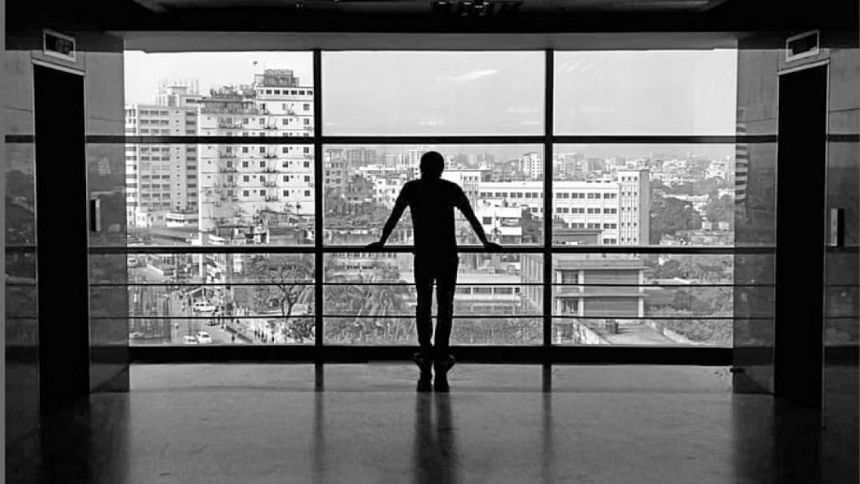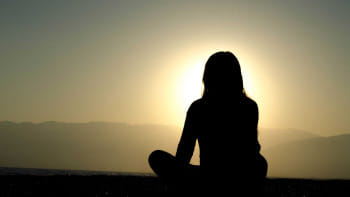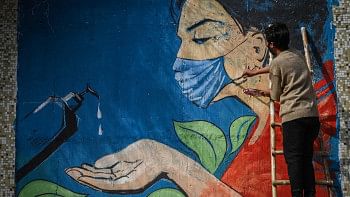‘Barn’s burnt down – now I can see the moon’

I write this column with some hesitation, since many may regard it a bit preachy or elitist. Given that the entire world is experiencing turmoil – even an existentialist threat – most readers are anxious to inform themselves about the outlook on politics, economics and sociology. People prefer to sift through op-eds that predict future trends and global developments.
I, too, often reflect on these issues – not as an analyst or futurist, but as a humanist. I look at situations through the lens of my humane experiences, trying to understand how the decline of socialism, the rise of raw capitalism and authoritarianism may have impacted people's emotions, psyche and attitudes. In recent years, the pervasive culture of intolerance, selfishness and material greed has numbed me into inaction, and I have been afflicted by the common malaise known as "indifference," allowing myself to flow with the tide and embrace the comforts that a retired life in the West offers.
Once in a while, though, I receive a sudden jolt that forces me to focus on the cost of making compromises with the values of my inner core. The most recent awakening began with a late-night phone call from a cousin in Dhaka, informing me that my music teacher/mentor had suddenly passed away. He was much younger than me – a talented classical singer, but more of a dreamer than a pragmatist. The thread that bound us was a passion for music. We first met three decades ago, and my daughter and I started taking lessons from him. My purpose was to hone my musical skills, while she received training in Hindustani classical music. With his low-key but dexterous handling and patience, he transformed into my music mentor and her guru.
I lost touch with him after moving abroad, but revived the old connection occasionally during my visits to Dhaka. Years passed by and both of us were engulfed in the usual challenges of our respective lives. Our bond became tenuous. The young man who had brought a fresh perspective to music years ago, was now caught up in the vortex of life's practical battles. He had progressed into a full-time professional music teacher, providing security to his family and struggling with his career and public recognition. I, too, had moved away from my ideological dreams to a more mundane existence.
I was stricken with grief and recurring remorse. But then, if we humans don't feel such extreme grief, how would we experience the intense passion that helps us revive ourselves? Gradually, as the first rays of the sun filtered through the windows, I began to gain a sense of clarity – an inner voice was asking me to reprioritise and change course. There was still time, not only to connect with my mentor's grieving family, but also to be attentive towards those that I had drifted away from. Individuals who had helped me grow emotionally and spiritually and who needed me now!
On my last visit to Bangladesh, my teacher/friend texted me and asked for a music session like old times. I also wanted it but, once again, several obligations – some important and some not – kept me busy and I neglected to respond. Was it a subconscious choice? Was I afraid to turn the wheel backwards and sift through the layers to rediscover the calling of my soul? It was, after all, easier to move on with the "new" life I had created. But, alas, we are more fragile than we realise, and nothing gives us full protection from the randomness of destiny's hand…
After my cousin's phone call, I lay awake waiting for dawn to creep in and the world to wake up. I checked my phone for my mentor's last message sent in November 2022, "Apa, amra gaane ki ekebarei boshbo na?" (Apa, are we not ever going to sing together?) My answer was vague, "Yes, we will, let me find the time." I guessed his message was a coded appeal for help. What I didn't know was that he was facing health and monetary challenges. I didn't bother to ask and he was too proud to tell me.
As I sipped my cup of morning tea, there was a lingering sense of loss. I had failed myself. The graceful Saraswati statue in my living room lay inert with her Veena – the statue meant nothing without the sweet sound of the Veena's strings. In an instant, I was smitten by the fact that none of the material possessions I owned were irreplaceable. However, the void that I had created within me by an insouciant disregard for a unique friendship would be difficult to fill.
I was stricken with grief and recurring remorse. But then, if we humans don't feel such extreme grief, how would we experience the intense passion that helps us revive ourselves? Gradually, as the first rays of the sun filtered through the windows, I began to gain a sense of clarity – an inner voice was asking me to reprioritise and change course. There was still time, not only to connect with my mentor's grieving family, but also to be attentive towards those that I had drifted away from. Individuals who had helped me grow emotionally and spiritually and who needed me now!
It will be a difficult road to traverse. I would have to revamp my lifestyle, losing a few social connections and material possessions on the way. But in shedding what I need to, I could rediscover what is essential – like the Haiku composed by 17th-century poet Mizuta Masahide: "Barn's burnt down – now I can see the moon."
Am I fully ready for this metamorphosis? Maybe not. But I now know that the force is within me, ready to make the right choice. And there are many out there waiting to receive the grace!
Milia Ali is a Rabindra Sangeet exponent and a former employee of the World Bank.


 For all latest news, follow The Daily Star's Google News channel.
For all latest news, follow The Daily Star's Google News channel. 










Comments